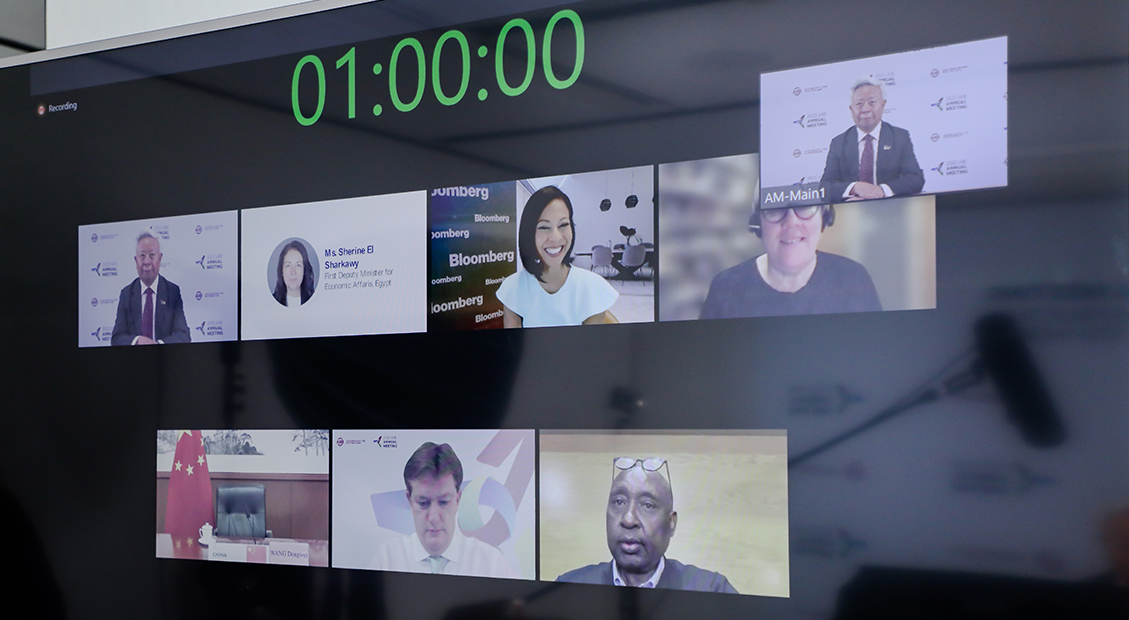The role of multilateral development banks (MDBs) like the Asian Infrastructure Investment Bank (AIIB) will remain critical when it comes to infrastructure investments that are better, smarter, more resilient and more efficient.
This was the overarching view of an expert panel during AIIB’s flagship webinar “Sustainable Infrastructure Toward a Connected World” held during AIIB’s 2022 Annual Meeting of the Board of Governors.
Infrastructure investment faces daunting challenges: A war, a pandemic, debt, high inflation and dwindling food supply.
Jin Liqun, President and Chair of the Board of Directors of AIIB, said that sustainable infrastructure touches the very heart of not just AIIB’s mandate, but that of other MDBs and the global community in general.
“The world has faced unprecedented pressures over the last three years,” said President Jin. “While some are short-term and cyclical, others like climate change are major systemic threats which have long-term implications for human society. The scale and complexities of these challenges and their impacts mean they cannot be solved in isolation, and an integrated approach to addressing them is crucial. The need for cooperation and multilateral action to address common threats is greater than ever.”
Despite the challenges, President Jin said “AIIB remains laser-focused on our core mission which is Financing Infrastructure for Tomorrow.”
China recognizes the importance of infrastructure investment, and according to Wang Dongwei, Vice Finance Minister, Ministry of Finance, the “Chinese government places great importance to infrastructure development.. Government strikes a balance between stabilizing growth and adjusting our financing structure.”
Wang said that the government also attaches equal importance to economic and social benefits to improve the whole cycle of effects of infrastructure investments for economic growth. According to Wang, the government has—since 2013—invested 4.8 trillion yuan to support key projects in major sectors, providing a stable source of funds to stabilize investments.
“In terms of financial credit policies, since June 2022, the government has raised credit lines of policy banks and supported financial institutions to increase financial support to infrastrucuture investments,” Wang said.
When it comes to investments, Danny Alexander Vice President, Policy and Strategy, AIIB, said the challenge is how to maintain focused on sustainable infrastructure He noted that these are extraordinary times with many shocks affecting many countries, including COVID-19, the Ukraine war, global policy changes, and others.
“At the same time, the consequences and the potential existential crisis of climate change are that governments have fewer resources at their disposal,” Alexander said.
The 2020s is a critical decade for action on climate change, meaning we have to “mobilize investment at a scale that is needed to address” climate transition around the world, Alexander added.
In terms of sustainable investments, Alexander said AIIB will remain “client-focused” when it comes to Infrastructure for Tomorrow or what AIIB clients will need in the next decade for their development.
However, Alexander said the scale of investments available from AIIB and other MDBs is small compared to the scale of the issue of climate change, meaning there is a need to support funding mobilization efforts. He said international institutions and MDBs need to work together with philantrophic efforts for the sustainable investments needed.
For Rachel Kyte, Dean of the Fletcher School at Tufts University and former CEO of Sustainable Energy for All, the current times are “extraordinary moments of potential leverage for AIIB,” when it comes to sustainable investments.
“We are at a fork in the road,” Kyte noted. “We have a very clear diagnosis of what is needed in terms of sustainable infrastructure investments in the next decade. But the question really is, are we able to mobilize finance, to be able to deliver on the pathway? At the very heart of this are MDBs.”
Kyte zeroed in on climate change investments, which she said remains one of the major challenges for MDBs. She said the amount of investments needed in renewable energy today stands at USD1.3 trillion per year, and to get to where the world needs to be in 2030, this needs to be USD2.3 trillion.
“But to get to net-zero, investments should be more in line with USD4 trillion every year. How do we move up that kind of curve? That is the question in front of us now,” Kyte said.
She added that the biggest problem is that the cost of capital for renewable energy in low-income countries and developing and emerging markets is 2 to 3 times higher than the cost of capital in advanced economies.
“This is where AIIB becomes so important,” she said. “That gap has to be solved by effective use of MDBs and their ability to crowd-in private finance and bring in private and public finance to play in these markets quickly,” Kyte said.
Dr. Donald Kaberuka, Chairperson and Managing Partner of SouthBridge, echoed the previous comments and also said MDBs continue to play a major role in infrastructure investments. Kaberuka said MDBs have to consider five megatrends when it comes to infrastructure investment. These will include demographic transitions, urbanization, climate change and how to manage globalization. He noted that infrastructure investment would have to be adjusted or balanced, considering these five trends.
However, financing in itself presents a challenge. Kaberuka said: “concessional financing” is reaching a plateau globally. “I hope I am wrong but if we look at the trends worldwide, concessional finance is reaching a plateau. So the challenge to MDBs is how to best deploy this scarce resource,” he said.
Watch the session replay on AIIB’s YouTube channel.


